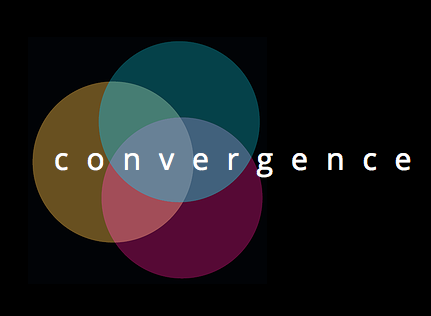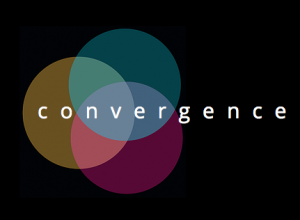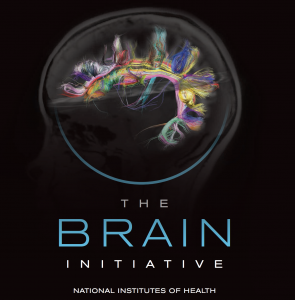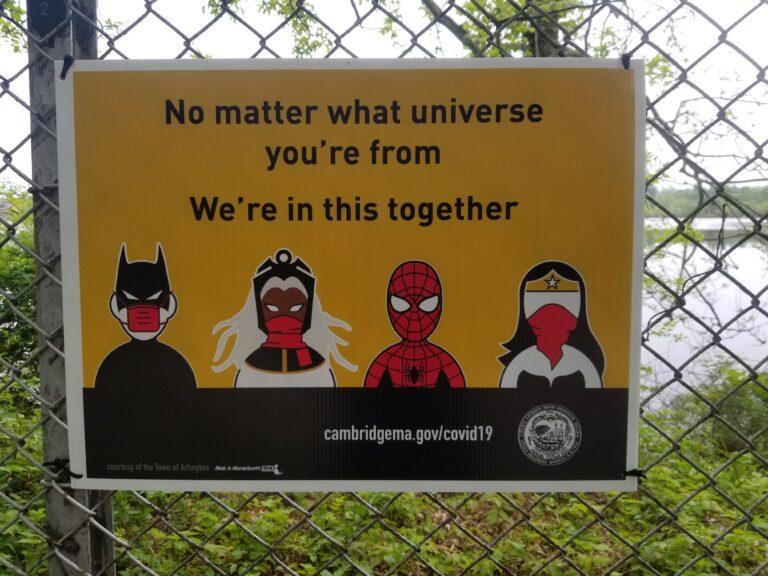
MIT Graphic, Convergence Report 2016
We thought our readers would like to know about “Convergence and the Future of Health,” a report released today by the Massachusetts Institute of Technology. (Slightly self-serving full disclosure: New Cambridge Observer‘s Anita Harris was one of the writers).

CAMBRIDGE, MA — What if lost limbs could be regrown? Cancers detected early with blood or urine tests, instead of invasive biopsies? Drugs delivered via nanoparticles to specific tissues or even cells, minimizing unwanted side effects? While such breakthroughs may sound futuristic, scientists are already exploring these and other promising techniques.
But the realization of these transformative advances is not guaranteed. The key to bringing them to fruition, a landmark new report argues, will be strategic and sustained support for “convergence”: the merging of approaches and insights from historically distinct disciplines such as engineering, physics, computer science, chemistry, mathematics, and the life sciences.
The report, “Convergence: The Future of Health,” was co-chaired by Tyler Jacks, the David H. Koch Professor of Biology and director of MIT’s Koch Institute for Integrative Cancer Research; Susan Hockfield, noted neuroscientist and president emerita of MIT; and Phillip Sharp, Institute Professor at MIT and Nobel laureate, and will be presented at the National Academies of Sciences, Engineering, and Medicine in Washington on June 24.
The report draws on insights from several dozen expert participants at two workshops, as well as input from scientists and researchers across academia, industry, and government. Their efforts have produced a wide range of recommendations for advancing convergence research, but the report emphasizes one critical barrier above all: the shortage of federal funding for convergence fields.
“Convergence science has advanced across many fronts, from nanotechnology to regenerative tissue,” says Sharp. “Although the promise has been recognized, the funding allocated for convergence research in biomedical science is small and needs to be expanded. In fact, there is no federal agency with the responsibility to fund convergence in biomedical research.”

The National Institutes of Health (NIH) are the primary source of research funding for biomedical science in the United States. In 2015, only 3 percent of all principal investigators funded by NIH were from departments of engineering, bioengineering, physics, biophysics, or mathematics. Accordingly, the report’s authors call for increasing NIH funding for convergence research to at least 20 percent of the agency’s budget.
Progress and potential
 In 2011, MIT released a white paper that outlined the concept of convergence. More than just interdisciplinary research, convergence entails the active integration of these diverse modes of inquiry into a unified pursuit of advances that will transform health and other sectors, from agriculture to energy.
In 2011, MIT released a white paper that outlined the concept of convergence. More than just interdisciplinary research, convergence entails the active integration of these diverse modes of inquiry into a unified pursuit of advances that will transform health and other sectors, from agriculture to energy.
The new report lays out a more comprehensive vision of what convergence-based research could achieve, as well as the concrete steps required to enable these advances.
“The 2011 report argued that convergence was the next revolution in health research, following molecular biology and genomics,” says Jacks. “That report helped identify the importance and growing centrality of convergence for health research. This report is different. It starts us off on a true strategy for convergence-based research in health.”
The report released today makes clear that, despite such obstacles, this “third revolution” is already well underway. Convergence-based research has become standard practice at MIT, most notably at the Koch Institute and the Institute for Medical Engineering and Science. 
“About a third of all MIT engineers are involved in some aspect of convergence,” says Sharp. “These faculty are having an enormous impact on biomedical science and this will only grow in the future. Other universities are beginning to evolve along similar paths.”
Indeed, convergence-based approaches are becoming more common at many other pioneering university programs, including the Wyss Institute for Biologically Inspired Engineering at Harvard University, and the University of Chicago’s new Institute for Molecular Engineering, among others.
The report also points to several new federal initiatives that are harnessing the convergence research model to solve some of society’s most pressing health challenges.
For example, the Brain Research through Advancing Innovative Neurotechnologies (BRAIN) Initiative, launched by the Obama administration in 2013, seeks to improve our understanding of how individual cells and neural circuits interact, in order to develop new ways to treat and prevent brain disorders. And the National Cancer Moonshot Initiative, launched earlier this year to accelerate research to develop cancer vaccines and early detection methods and genomic tumor analysis, will also operate largely using convergence tools and approaches.
But the integration of new technologies and methods from genomics, information science, nanotechnology, and molecular biology could take us even farther.
The report outlines three major disease areas — brain disorders, infectious diseases and immunology, and cancer — and promising convergence-based approaches to tackling them. It also presents case studies of four emerging technology categories: advanced imaging in the body, nanotechnology for drug and therapy delivery, regenerative engineering, and big data and health information technology.
A sampling gives a sense of their transformative potential. Convergence techniques could enable rewiring the genes of mosquitoes to eliminate Zika, dengue, and malaria. They could help solve the emerging threat of drug-resistant bacterial strains, which infect over two million people in the U.S. every year. Convergence-based immunotherapy could activate a person’s immune system to fight cancer, reprogramming a person’s T-cells or antibodies to find and attack tumor cells. Big-data techniques could be used to generate and analyze huge amounts of data on people’s exposures to industrial chemicals, environmental toxins, and infectious agents, creating a new field of “chemistry of nurture,” to complement the “chemistry of nature” developed by the documentation of the human genome.
“Convergence might come just in time,” says Hockfield, “given our rapidly aging population, increasing levels of chronic disease, and mounting healthcare costs due to demographic trends throughout the developed world. But we must overcome significant barriers to get to convergence.”
Cultivating convergence
Realizing the full potential of the convergence revolution will require much more ambitious and strategic coordination and collaboration across industry, government, and academia, the report argues.
The report accordingly calls for a concerted joint effort by federal agencies, universities, and industry to develop a new strategic roadmap to support convergence-based research. As a concrete next step, the report’s authors recommend establishing an interagency working group on convergence with participation from NIH, the National Science Foundation, and other federal agencies involved in funding scientific research, such as the Food and Drug Administration and the Department of Energy.
Other pressing challenges include grant review processes based on narrow, outdated disciplinary structures, which limit the availability of resources for cross-functional research teams. The report also proposes new practices to foster “cultures of convergence” within academic institutions: cross-department hiring and tenure review, convergence “cluster hiring” and career grants, and new PhD programs wherein students design their own degree programs across disciplinary boundaries.
If the potential of convergence is great, so are the stakes.
“Convergence has grown from a little seedling to a sprouting plant, but to become a great tree and orchard yielding fruit for decades into the future, it needs to be nourished, expanded, and cultivated now,” says Sharp. “Students need to be educated, collaborations need to be encouraged, and resources need to be committed to make sure convergence thrives.”
“This integration is important to deal with the great challenges of the future: continued growth in the accessibility and quality of healthcare, growth of the economy, and providing resources for future populations.”
Funding for the report was provided by the Raymond and Beverly Sackler Foundation, The Kavli Foundation, and the Burroughs Wellcome Fund.
###
Written by Jonathan Mingle, MIT News correspondent
New Cambridge Observer is a publication of the Harris Communications Group, a Cambridge, MA, PR & marketing firm specializing in health, science and technology.




This just in from a Texas scientist who prefers to remain anonymous:”
I think it’s a great idea. However, for the life of me, I can’t see how it differs in its practice from the inter-disciplinary collaborations that I have observed and participated in for my whole career. For example, for almost 15 years I have been collaborating with a physicist to study the protein that I am interested in. It’s not just me. Biochemists all think it’s very sexy when one of them gets together with a physicist and they come up with something new. This has been the case ever since I started my career. In my parallel area of cell biology, for example, there are all kinds of neat new microscopy techniques that are doing previously unheard-of things. I think that was mentioned in the Convergence Report.
It seems to me, however that there are three arenas where the Convergence model should be developed.
First, there should be a non-random way for people of different disciplines to get together, as opposed to “I was sitting on an airplane next to this physicist and he told me about his new microscope”. Harvard’s blending of the departments is a good way of doing it. That way, we can be assured that Scientist A in discipline A will have plenty of regular exposure to Scientist B in discipline B. They would get to hear each other’s seminars and progress reports, socialize together, etc., and ideas for collaboration will arise naturally.
Second, it would be nice to encourage the scientist in discipline A to take a course in discipline B and vice versa. That way, the scientist in discipline A would actually have a better inkling of what discipline B is all about and see how it could apply to discipline A. In other words, there would be more common ground between the two scientists. The courses should not be fabulous tours de force but rather simple introductions to given fields, guided by the participants’ interests. We need to keep in mind that scientists are always busy and adding a really tough course, normally given to majors in that discipline, may be too much.
Third, there needs to be a better way to review proposals in the Convergence area. I sit on study sections. Often, there may not be anybody who really understands some physics technique or approach so they either say, “OK, this sounds good”, or else they may be put off by it. A Convergence grant proposal would be put together by the people from the different disciplines. It should perhaps be reviewed the same way. In other words, set up a Convergence study section, have all Convergence grants reviewed by at least three people, instead of the current two (plus a reader). In other words, if the proposal is about breast cancer and it involves, say cell biology and physics, instead of being reviewed by two breast cancer experts with a lot of knowledge of cell biology and very little knowledge of physics, it should perhaps be reviewed by two breast cancer experts, both of whom have taken the relevant physics courses, and one physicist who has taken a cell biology course. One additional advantage of this is that people who are actually in a field can better evaluate the productivity of scientists in that field. For instance, it is a fact that chemists publish more frequently than biochemists. That’s not because they are better scientists, but because it is not difficult to get a chemical to study (you can order it from a company). However, purification of a protein for biochemical studies can take a very long time. When we evaluate the productivity of an applicant, we have informal metrics, so we can say: “This woman has published lots of papers in her area, and in very good journals”. I feel confident about making such a judgment for a biochemist, but not really for a physicist. I imagine the converse would be true as well. Yes, you can get impact factors, but they are often a poor indication of the worth of a scientist, in my opinion. You really get a better idea about that from word of mouth, but that would not be accessible to someone in a different discipline.”